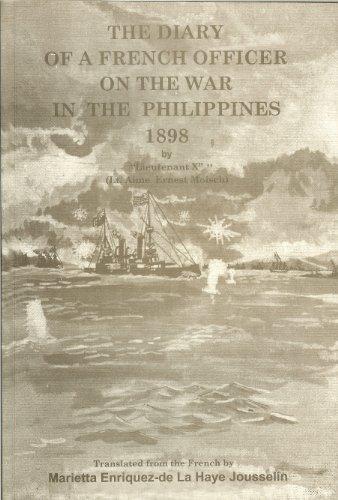The Insurgents Make Progress
In my view, Aguinaldo would already be in Manila if Admiral Dewey had not closed the doors on him. And undoubtedly, the Americans are not too pleased with the natives’ continuing approaches towards the capital.
The insurgents are seen regularly on the beaches from Cavite to Manila, and have attempted an underground attack in Pasay, Santa Ana, and Paco. On the 10th of this month, they had grouped themselves into an extended semicircle. When the insurgents encircled the city from north to south, at least six kilometers from the wall, the Spaniards were forced to block their approach at Santa Ana. The Spaniards, too weak to mount a serious offensive at any point within the circle, remained on the defensive. They worked assiduously on the trenches, the embankments, and the small fortresses. Today, they worked 5,000 meters from the enemy line. The Spaniards’ intention to give the illusion of an efficient defense proved unsuccessful due to the lack of artillery and men, both of which were too dispersed. They have established 14 small forts. The troops, spread out in the trenches, are ready to move towards the Walled City if Governor General Agustin persists in fighting. What is he waiting for? Apparently, a squadron to help his forces. Maybe he is thinking of joining the insurgents?
And yet, this could be the best approach to take. The insurgents are no longer in doubt about the American sentiment towards them. The Americans do not wish to see them enter Manila. It was not Aguinaldo’s idea to subjugate the city by famine, but rather Admiral Dewey’s. At this point, Aguinaldo procrastinates because of the shame he might have to bear if he were held responsible for the massacre of the Spanish population.
Since the middle of the month, there has hardly been any fighting, except for occasional shootings at night. A substantial amount of ammunition is being used by both sides without result. The Americans continue their surveillance with floodlights. Occasionally, one of their warships ventures forth and is subjected to the night inspection of the foreign divisions. On land there is some artillery fired during the day. However, threats of famine are not sufficient to disturb the enthusiasm of the Filipino troops. It is evident that Manila will eventually fall; the insurgents are aware of their strength and have a nervous desire to use it. At the outpost, those who are detained are posing a problem. Armed with knives and axes to face the cannons, they throw themselves fanatically on the Spaniards. Now that they have guns, they are very eager to go to battle.
Deeply discouraged, the Spaniards are themselves faltering, feeling that the situation is desperate. These old leaders, who are disgustingly lax, have neither character nor strength. They are incapable of following through any idea. Their only strategy, if it can be called that, is essentially one of delaying tactics to gain time. Their despair springs from their lack of defense against the wave of insurgents, but from time to time they sacrifice small groups of men to show that they have a line of defense, which actually does not exist. Extremely courageous soldiers die bravely for the most senseless reasons, and behind their heroic deeds one only finds frightened generals. And in the end, a silence prevails over everything. The officers who are expressly forbidden to say anything to the press give a standard reply. “Nothing new.” However, this situation is becoming extremely complicated, making it difficult to discern the facts from the falsehoods. Everyone fears that the revelation of the truth would show their underhanded tactics and their savage appetite, which spares no one.
In spite of the usual daily routine, the city displays the strangest moral aspect. Outwardly, the people have not changed overnight. The Tagals still remain domestics or coachmen, engrossed in everyday life, and yet, they are insurgents. No one has any illusions on that matter, to the point where a Tagal offering a drink to a Spaniard could, should the occasion arise, strike him down that very night with the same hand. And then there are the Tagals who may be incapable of committing murder, but would welcome the insurgents with open arms at the appropriate moment. All this is evident in every face and is confided secretly among friends. An air of foreboding hangs eerily in the pleasing yet cruel ambiance of this city, where laughter is heard as it experiences pain.
